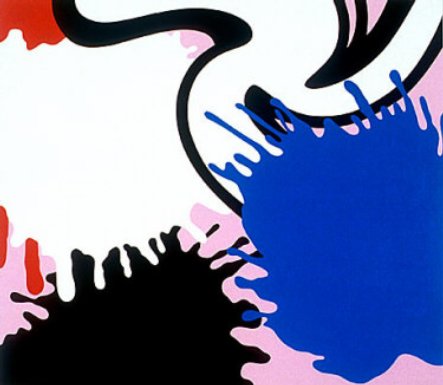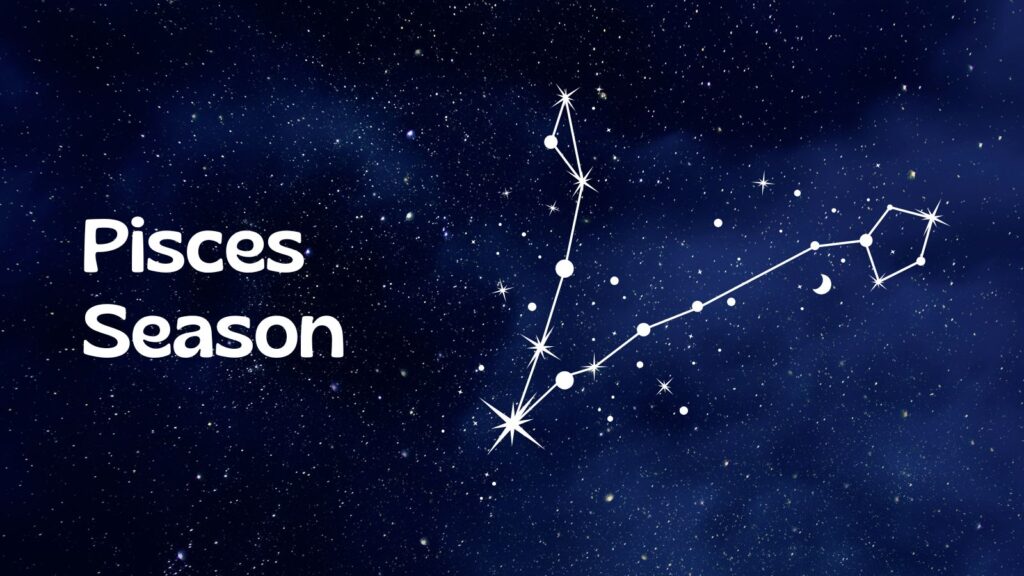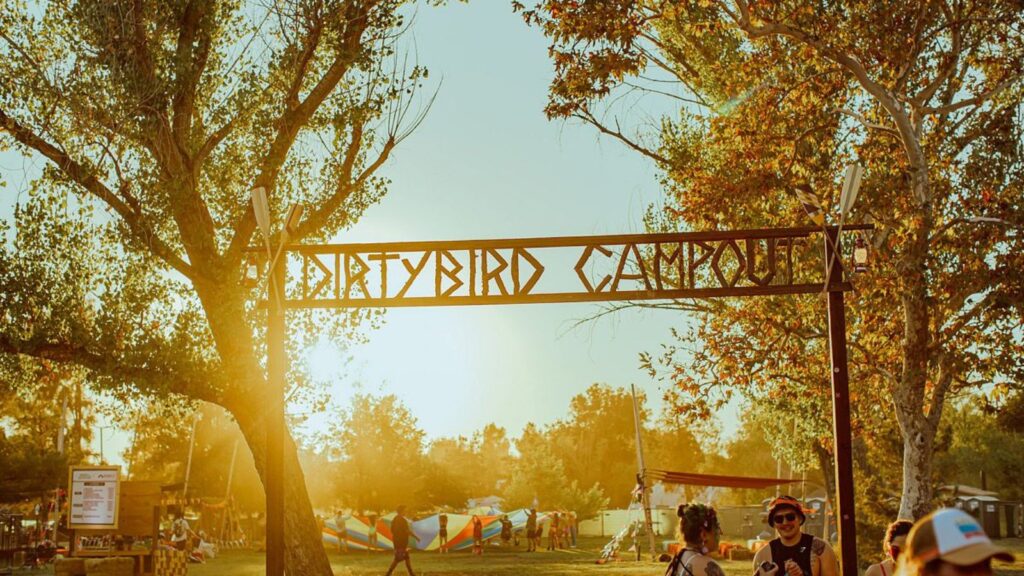As I approach 40, I wonder if I'm having too much fun. Surely by now I should settle down, stop going to Burning Man, and, you know, grow up. It's easy at 25 to say "seize the day" rather than "become a tax attorney"; seizing the day is a lot more fun, and rewarding, and has better poets to commend it. Not so easy at 37, when the tax attorney is pulling down a half mil a year and I'm still cashing freelance checks. It makes me wonder whether it's time either to give up the "seize the day" ethos, which so inspired me, at 18 when I read about it in Thoreau and Ginsberg, and saw it elucidated in Dead Poets Society, or at least translate it into a new era of maturity and responsibility — that is, translate it out of existence.
Granted, what I call "fun" is not what most people mean. Here I use the term in a broad and intentionally self-deprecating way, to refer to anything my heart deeply wants, from meditation retreats to writing a novel. Of course I know many rationales for such activities, all of which prove that they are much more than mere fun, are essential to the human condition, are part of the Divine plan, or whatever. But I don't want to make any pretensions. At times, I am certain that I strayed from the straight and narrow path for such higher purposes: to alleviate suffering, to create art that only I could create, and to be able to look back on a life well-lived, which to me means drinking deeply from as many its wellsprings as I could find. But I think that, when push comes to shove, I have made these choices because I deeply wanted to make them. Sure, these deep yearnings are different from simply wanting to get some kicks. But they are still about "fun," I think: about the juiciness of life itself, about experience, about enjoying life, in the deepest sense.
I've also come to accept that the desire for fun may really just be a matter of disposition. Personally I love frolicking at the Barefoot Boogie, cutting loose and having a good time — but other people, by disposition, just feel awkward and uncomfortable, and are probably relieved, more than anything else, when they've left the dancing stage behind. Likewise, as I'll explore more below, I am spiritually fulfilled when my practice is juicy, visceral, and intense — but other people, simply as a matter of taste, prefer calm reflection and inherited traditions. Fair enough — let's say it's just a matter of preference. Suppose I have just been doing what I wanted. Is there anything wrong with that? Why are we supposed to grow up and stop having fun, anyway?
Well, it turns out that there are a number of reasons. First, at least for me, there is what former Yale Law School Dean Anthony Kronman called the "firestorm of regret." I am now at the age where peers of mine are not just rich tax attorneys, but also influential politicians, respected professors, and writers and editors at publications (even) more well-known than Reality Sandwich. In contrast, when I look back on my last ten years, it seems that they've been marked by an inability to say no to life — I've wanted it all, and as a result have gotten a little bit of everything, rather than the depth in just one or two things that's necessary for real success. I've written about this before — my affinity with the undisciplined fox rather than the focused hedgehog, in Isaiah Berlin's typology of intellectuals. Berlin seems to feel that both have roles to play in the world, but as a fox, I wonder if I'll go to my grave still wondering whether I've been a Renaissance Man or a dilettante.
These pangs of regret occur because of an underlying anti-fun value: that one should make something of oneself. This is a particular, Western value that is not shared by all civilizations. Probably the most obvious counterexample is the Rastafarian (or pop-Rasta) value of spending an entire life delighting in the pleasures of Jah — working, to be sure, to better social justice, but never losing sight of the gifts of creation, which are here to be enjoyed. Every time I go on vacation I meet people who gave up the high-stress, hundred-email-a-day life that I lead to fish, or run a dive shop, or just sit on the beach. They seem very relaxed. But for all the appeal of the fantasy, I feel that I couldn't be one of them. I'd always wonder what I might have been.
But it's not just the Rastas. Consider the monastic ideal of diminishing the ego, lessening the bonds of desire, and thus attaining a form of grace, or enlightenment, that is available only to those who relinquish. Trying to "make something of oneself," in this view — held in many schools of Buddhism, Christianity, and even, in a way, Judaism — is a grave mistake. Indeed, it's one of the main causes for suffering on the planet, both for those who are climbing to the top of the heap, and, more importantly, on those they step on, on their way.
So it's not that achievement is a universal value; it isn't. But it is one which I've internalized, thanks to my karma, upbringing, family, community, and my own desire for success. The desire for achievement is there, along with my regretful and comparing mind which notices how many other people are achieving. But in order to achieve, you've got to settle down, mature, and focus — three things I haven't been very good at, ever since I "got off the treadmill" (to quote another Yale Law School dean, Judge Guido Calabresi) a few years ago.
A third reason to stop having fun, along with regret and the value of achievement, has to do with dignity and maturity. It's just undignified, isn't it, to be the balding guy on the dance floor. Mick Jagger may still look okay doing his thing at age sixty-whatever, but I'm trying to be a serious intellectual, a PhD for god's sake — and nothing is more ridiculous than professors who think they're rock stars. Admittedly, in my gay community, there are many men who keep having fun — dancing all night, having a lot of sex — well into their upper decades. There, the values are different. But how do we judge them ourselves? I think, whether out of conformity with expected norms, or shame, or just a sense of propriety, many people stop having so much fun because it just doesn't do anymore. There's a time and a place for everything — and the time for raves has passed.
Privately, I wonder if the real reason beneath this supposed norm isn't just that, for many people, the fun isn't fun anymore. At a certain point, the pain of dancing for six hours outweighs the fun; the sex isn't as intense; and the thrills of the first-time meditator, first-time traveler, first-time whatever, are long gone. Fortunately, the value of "maturity" elevates this physical or psychological debilitation, gives it class.
A fourth reason to stop having so much fun is, of course, that life isn't always fun.
Pleasure, even in its deepest form, is only one of the important aspects of life. In a long-term relationship, for example, pleasure waxes and wanes, but if the pursuit of immediate sensual pleasure (affairs — fun!) is placed above commitment (less fun), the end result will likely be sorrow. Or in terms of health: the burger is fun, but heart surgery is not. Or in terms of emotional depth: picnics are fun, but visiting the friend in the hospital is not. Or in terms of spirituality: spiritual highs are fun, but living ethically may not be. In all these instances, "seizing the day" begins to look infantile, and narcissistic. Living fully and truthfully requires more.
Fifth, if life is only pursued for the delights of the self — even highly refined delights like reading post-structuralist theory or creating art — it becomes a dead end. It's too easy to keep searching for the next thrill; this is how people become addicted to drugs, like an acquaintance of mine who died, at age 38, because of his years-long crystal meth addiction. At first it's fun; then it's less fun; then you need to do it to have any fun at all. So, too, with spirituality. The first meditation retreat is such a high! You think you'll never come back down. But then you do, and you start searching for the next high: samadhi becomes a narcotic. And so too with many other pursuits as well; to me, the jaded artist-hipster who's bored by life because she's seen it all by 25 is little different, psychologically, from the junkie.
Finally, I think we're meant to stop having fun, at some point, because of a sense of deeper responsibilities, most importantly to family and community. Of course, since I've defined "fun" to include anything that provides a sense of joy in life, family is fun too. But I think it's distinguishable, in that the intention of the family man or woman may be less "I am doing this to taste the joys and sorrows of life" than "I am doing this because it is my role, or my duty, or my responsibility." Likewise for career; it may be fun, but it's mainly responsibility.
So there are at least six reasons to stop having so much fun: regret, achievement, maturity, truthfulness to life, avoiding the dead-end, and taking responsibility.
And yet, I still do it. I still find myself making choices that lead to more juiciness — again, less, these days, in terms of all-night raves and more in terms of spiritual growth and artistic creation, but juiciness nonetheless. On good days, I am at peace with this decision. It's not been just about thrills, for me. I find that deep pleasure (aesthetic, spiritual, erotic, intellectual) truly leads me to the sacred. I wake up out of whatever trail my mind has gone down, and into the reality of the present moment (to risk a cliche), where I inevitably feel great gratitude, peace, and holiness. There is so much aching beauty in the world, that I fall in love with it anew every week.
Yet on less good days, it seems I'm condemned to second-guess this choice: to wonder whether the knowledge I've acquired, out of a zest for learning and what I hope is an authentic lust for life, balances the more conventional achievements of my wealthier and more-respected peers. And to wonder whether I haven't been too selfish; whether I might have applied my gifts in a way that helped the world more. And, finally, to wonder when, if ever, I'm going to grow up.
I don't know whether this schizophrenia will ever resolve itself, whether I'll finally let go of the bourgeois-American-Jewish urge to achieve and be somebody — or whether I'll follow it, relinquishing my childish Dead Poets ideals to memory and history. Both sides have their arguments, both sides their appeals. And in my typical fashion, I'm still trying to have it both ways.
As I've reflected on these values on a personal level, though, I've begun to notice that they are expressed societally as well. I think it's no exaggeration to say that we Americans have a fear of fun — even as we are the most immature and thrill-seeking society in the history of the planet.
Consider the triad of atheism, religion, and spirituality. Many spiritual types can't understand why, on the one hand, atheists just don't get it, and why on the other, religious fundamentalists are still tied to their fear-based system of authority and repression. Many skeptics, in turn, just can't believe how duped religious people are — and the spiritual ones worst of all: at least the fundamentalist is just believing what people told her, and buying into a system of thought which, while ultimately false, is committed to something. But the mystic? Having a pleasant experience and calling it union with God? Are we deluded, retarded, or just nuts?
Now, there is certainly plenty to criticize about the fuzzy thinking of the New Age, not least its immediate leap from an experience which seems very certain to a claim about what it actually is. Yet I think the critiques of the skeptics are less about the truth-claims of the mystics than about the experiences themselves. In short, the mystics are having too much fun. Too much juice, too much energy, too much subjectivity and emotion. It's not that the skeptics are jealous; it's that they're suspicious. Something smells rotten.
Likewise on the religious right. Just as the skeptics do, the traditionally religious doubt the truth of mystical claims. But, also as the skeptics do, perhaps they recognize a fundamental difference between the traditional-religious impetus and the mystical one: that the latter, and not the former, is oriented toward "fun," again in the wide sense I'm using it here: to experience, to ecstasy, to sucking the marrow out of life. The traditional-religious may talk about meaning, but the mystic feels it. And this makes people suspicious.
What's going on? Clearly, it's not really about the facts. Of course, there are abuses — but most mystics end up not as sexually-abusive cult leaders but working either within a traditional ethical system or creating a home-spun ethics of compassion and gentleness. It's not Waco, but Woodstock.
Yet even Woodstock represents an inversion of certain religious values. If religion is about rules, mysticism is about experience; if religion is about authority, mysticism is about subjectivity; religion is about mediation (by text, by priests, whatever), mysticism about the unmediated; and religion is about adherence to codes, mysticism about "fun."
In traditional religious circles, there is a clear understanding of this anti-fun — that is, anti-experiential and anti-subjective — orientation. Traditionalists get upset by mystics' disruptions of cultic purity, in particular sexual purity. Where are "traditional values" when someone is meditating? All these hippie-spiritual types are smoking grass and engaging in free love — that's not religion, it's witchcraft. And indeed, it may be; perhaps what we think of as evil is simply that which the orthodox have feared. Perhaps, when one tastes of the forbidden fruit, it's all a big joke, because it doesn't hurt you at all, and it's just people in authority who wanted you to think that it would. More on this, I hope, in a future column. Certainly, though, it's true that subjective spirituality can go hand in hand with a rejection of traditional morality, even though it needn't necessarily. And so, like the skeptic-progressives, the traditionalists are suspicious.
It's experience that they're suspicious of — experience unmoored from pre-defined consequences. And in a certain way, they're right to be. Experience sometimes is life-changing, but sometimes it's just experience — and either way it's bad for traditional religious norms. As Ken Wilber has explained, experiences provide rich mind-states, but they don't necessarily advance one through any stages of development, and they are susceptible to wild, even dangerous, interpretations: one person's moment of inspiration is another's message from God, the same experience that can be interpreted as transcendence of ego can, for some, be the strongest expression of it. But then, experiences can also help propel one through various stages of religious development, leaving mythic religion behind in favor of new and more subtle realms. The fundamentalists have reasons to be fearful of fun.
But let's say experience is pointless. Let's say it leads to nothing. Let's say it's just fun. What then? For a traditionalist, that could be the most worrisome of all.
Experience is centered on the present, on the "Now," without a particular outcome or history. It's the feminine principle, Kabbalistically speaking, the immediate, the Presence, the cyclical. No wonder both androcentric traditionalists and andro-liberal progressives don't like it very much. It doesn't get you anywhere, doesn't build anything, doesn't make anything. It just is, rich and juicy and resplendent… and who knows, possibly pointless.
Pointlessness is a problem for sexuality as well. Like religious experience, sexual experience in the traditional model is supposed to make something: a baby. Or at least the bonds of stable, familial life. Sex separated from this linearity is anarchic, dangerous, destabilizing — and of course, lots of fun.
For example, it's been well observed that the argument that gays and lesbians "undermine the family" is not about homosexuality at all, but about the regulation of pleasure generally. How could two men having sex possibly undermine "the family" as an institution? Because, as with a woman having an abortion, they shift the fundamental meaning of sexuality — from instrumental to intrinsic, from linear to immediate, from functional to fun. In the traditional view, sex is a tool. Sure, it feels good, but that's because God in His wisdom, or natural selection in its, wanted to incentivize us to do it, so that we would populate the planet, and create stable societies based around the family unit. Never mind that the Bible's dominant mode of sexual-societal structure is polygamy and not monogamy, the point is that family is the bedrock of society, and instrumental sex, rather than fun sex, is the bedrock of the family.
In this way, any sexuality divorced from its traditional structure really does undermine the family. I recently received an email from someone who had lived as a gay man for several years, and then, after a bout of repentance, married a woman and raised a family with her for twenty years. In his view, homosexuality really does undermine the family, because, for some men, it distracts them from the procreative trajectory that they're meant to be on. For some other men, it may not be a problem, but for a large enough percentage, presumably, it would be. Once again: the fear of fun, here because the fun of free sex derails the train of procreation.
Well, having only limited experience with procreation myself, I can't offer much personal evidence for whether it really works that way. Certainly Greece and Rome managed to repopulate themselves, notwithstanding a bisexual (or bisexual-pederastic) sexual norm for men. But I don't think we're really talking about eugenics here. I think, once again, the question is one of fun: whether life is primarily about experience and "seizing the day" (no coincidence that the American Romantics associated with Dead Poets Society included free-love activists and gay men), or whether it is about the same anti-fun values from part one: responsibility, duty, and the rest.
This fear of fun, I think, underlies many of our societal paranoias. The insane criminalization of harmless drugs, for example, is publicly justified by a delusionary belief regarding their harmful effects, a willful ignorance in the face of the facts. But these arguments are so specious, and so ignorant of scientific fact, that they seem to be only the cover story for a subtler agenda of social control. Are we really worried about the pothead who drives stoned — or the fact that your teenage daughter might smoke pot and have more sex than she ought to? Or forget the sex — maybe she'll just smoke pot and become too focused on the present, no longer making a better future for herself and your unborn grandchildren. Her life will go off the rails — just like mine.
It's the untethered nature of fun that's the problem here. Fun over family, fun over tradition, fun over propriety, fun over achievement. Obviously, there is plenty of hypocrisy on the traditional right, which condemns some forms of fun but not others — such as alcohol abuse, or indulging the id at the expense of the environment. But these religious and ideological debates, when seen from the perspective of fun, suddenly seem as familiar as Footloose.
I don't want to decide which side is correct. Really, the ideology of fun is nothing other than the pagan impulse — toward experience, fun, presence, and sensuality — has been with us for thousands of years, and has been ever at war with the contrary one, which has labeled it evil, Satanic, and wrong. In my Jewish theology, this is simply the movement of the downward-pointing star, the Shechinah, the body, and the now — to be balanced with (not suppressed by) the upward-pointing, male, linear, spiritual-intellectual one.
But as with any system of "balance" and golden means, the calculation is all left for later. Maybe the conservatives are right that we've gone too far in the direction of fun, and we're falling into decadence. Indeed, maybe we'll become as fat and lazy as the ancient Romans, vulnerable to attack by 21st century vandals. Or maybe the libertines (spiritual, physical and otherwise) are right that what endangers the world is not too much fun but too little, and to save ourselves, we need to cast cynicism, judgment, and restraint to the wind, and let the sun shine in.
For me personally, I guess by now I've made my choice. I'm 37, old enough to know better, but young enough to pass sometimes. I still go to Burning Man, still let my life jump off the rails — even though I still am tempted by the palaces of financial conformity. I haven't stopped sucking the marrow out of life. And while I can be self-deprecating about that marrow and just call it "fun," something inside of my soul sees it as something more vital. Like actual marrow, it births the lifeblood, the spirit in the flesh, the God/dess pulsing through the world.
Image by Jenny Hankwitz, courtesy Cheryl Pelavin Gallery.
An earlier version of this essay appeared in Zeek: A Jewish Journal of Thought and Culture (www.zeek.net).













